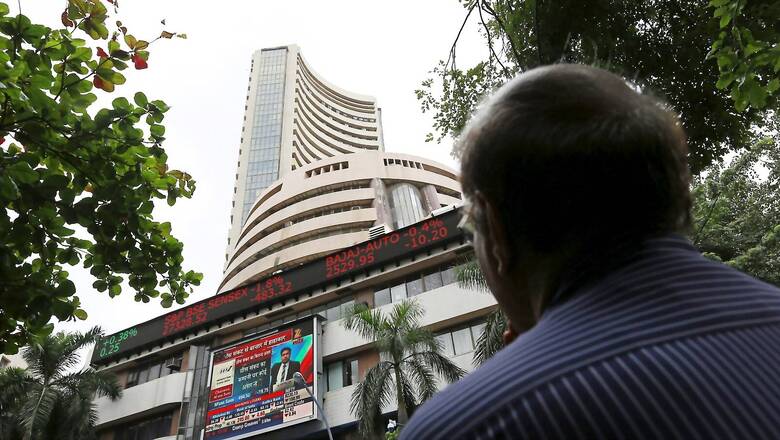
views
Even as the high inflation rate prevailing in the country is hitting the common man hard, it is equally impacting investors in the equity market. The high inflation is attributed to supply chain disruptions first due to COVID-19 and then the Russia-Ukraine war. Experts say high inflation is adversely affecting the portfolio of individual investors as it is eroding real returns. They also advise what an individual investor should do now:
The retail inflation in India, based on the Consumer Price Index (CPI), in April stood at an eight-year high of 7.79 per cent, thus forcing the RBI to hike interest rates in an off-cycle monetary policy in May. The RBI’s MPC increased the key repo rate by 40 basis points. In the ongoing monetary policy meet also, the six-member rate-setting panel is expected to raise the repo rate by up to 50 basis points (bps).
Independent market analyst Ambareesh Baliga said, “High inflation rate forces the central bank to go for interest rate hikes, which affects various sectors… The high inflation in the country has started appearing on companies’ earnings as their profit margins are getting affected due to high input costs.”
Baliga said the companies generally do not pass on input costs to customers immediately, except the EPC (engineering, procurement and construction) sector that passes on immediately. “It takes three-four quarters for a company to pass on the high input cost to customers. And, if inflation keeps rising, the impact will continue for long.”
Another market expert said, “High rate of inflation affects overall annual returns for investors. For example, if a portfolio has given an investor a 10 per cent return and the inflation is 4 per cent, then the real return rate is 6 per cent. But, due to high inflation, as companies’ profitability reduces on higher cost of inputs, the return on shares also declines. Let’s say, now, a portfolio gives an investor a reduced 7 per cent return now and the inflation rate is also 7 per cent. In this case, real rate of return is zero. So, inflation affects both profitability of a company and real returns for investors.”
High inflation rate in the US is also forcing the Federal Reserve to increase interest rates, which is affecting foreign portfolio investment in India who have pulled out about Rs 1.69 lakh crore so far in 2022.
What Individual Investors Should Do
Baliga said retail investors should book profit for now and wait for the market to correct some more and buy again at lower prices.
The BSE benchmark Sensex on Monday declined 93.91 points to end at 55,675.32 and the NSE Nifty fell 14.75 points to 16,569.55 points. The Sensex has fallen about 9.2 per cent in the past five months since January 17, when it stood at 61,308.91 points.
“There is some more scope for correction in the market. The next two-three months will be a good opportunity for long-term investors to load up their portfolio,” Baliga said adding that as high inflation pushes the central bank to raise interest rates, the BFSI sector can be benefitted from this. BFSI stands for banking, financial services and insurance.
Read all the Latest Business News here
















Comments
0 comment